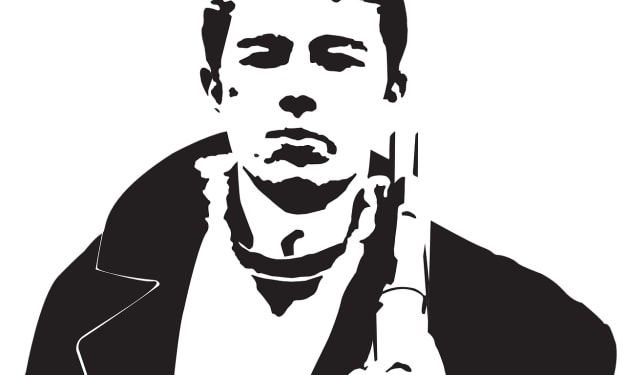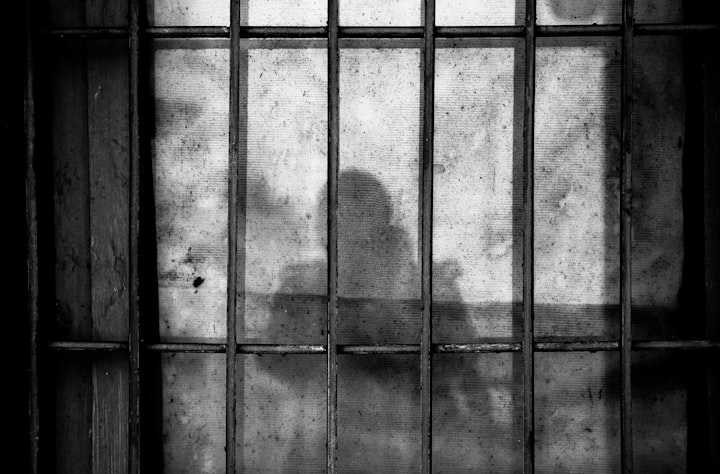The Creeping Unease of ‘The Serpent’ Makes for Perfect TV
But should it?

"No one wants to read your shit," so says author and writing sage Steven Pressfield. He's right, but that's not the whole story, no one also wants to watch your shit or listen to your shit either.
In a world with a million options for entertainment, it's exceptional when we stick with anything. Everyone's looking for an excuse to fast forward, to turn the page, to tune in, drop out and look at their phone.
Today’s audience has seen it all. This isn't 1997 when we were wooed by DVD players, or 1984 when VHS meant movies in your living room. The bar has been set extremely high, and I’m probably worst than most for being cynical about films and television.
That show you love? I probably hate it.
Peaky Blinders? Boring and formulaic. Breaking Bad? I turned it off after episode 3. Marvel films? Substanceless twaddle (yes, even the ones you think are great).
So when I found myself glued to the sofa for eight, hour-long episodes of The Serpent, I knew there was something special about it. I didn’t check my phone once. Me. Mr ADHD.
It’s a gritty, true-crime thriller set in the 1970s, mostly in Thailand, following the string of murders committed by Charles Sobhraj, a seemingly sophisticated gem dealer who preys on backpackers by drugging and robbing them, often with fatal consequences.
Revisiting Steven Pressfield, he said any good story has three elements to its success; The hook / The build / The payoff.
Reviewing The Serpent through this lens, I realised how masterful it truly was.
Of course, the best thing about great art is you can't analyse it at the time, it doesn’t give you the breathing room, rather it takes by the wrist and drags you into its world until it is done with you.
The following (spoiler-free) analysis has been written post-viewing, when the show had ended but stuck with me, like a small burn on the back of your hand that tingles for days and won’t leave you alone.
The Hook
The Serpent begins with a cold-faced Sobhraj sporting a severe-looking bowl-haircut, being interviewed in 1997 by an American woman asking if he was a serial killer.
“No court has found me guilty and no court in the world can try me” is his icy response as the television cameras whir in the background.
We flip immediately to Thailand in 1975 to see a younger, dapper Sobhraj standing poolside in pressed flares and a wide-collared shirt, surrounded by backpackers. It’s like seeing an exceedingly well-dressed lion surrounded by gazelles, blind to their danger. The game is on.
The Build
This is pure cat and mouse tension. As the series progresses, we see three things; Sobhraj killing innocent-eyed travellers, Sobhraj charming both men and women to work with him to help systemise his murders and thirdly, a lone Dutch embassy man, Herman Knippenberg, chasing the evidence of the missing backpackers and growing to realise he has a serial killer on his hands.
It’s the reality of it all that breaks your heart; the people Sobhraj killed were real, Knippenberg’s solo efforts in the face of cynicism and resistance (he wasn’t a policeman after all) was also real and Sobhraj‘s psychopathic charm to get his girlfriend Marie-Andrée Leclerc and accomplice Ajay Chowdhury to work with him was blood-curdlingly real.
I watched director Paul Verhoeven's Robocop far too young. There’s a scene when the government robot Ed-209 is showcased in the boardroom and as a test, a young executive points a gun at it. Ed-209 immediately demands the gun is dropped. “You have 20 seconds to comply” it repeats. The executive drops the gun but Ed-209 persists with its countdown as the executive runs around the room in a panic. His colleagues merely laugh, pushing him away until he is machine-gunned to death in front of them.
The scene disturbed me greatly because no one cared about his life. They just laughed. That same ominous feeling exists with Sobhraj and his gang. You can rationalise a sartorial looking murderer was running around Thailand but you can’t rationalise the actions of his accomplices, nor the lack of interest from the authorities. No one seemed to care about these innocent and naive travellers.
Tension is served up scene by scene as Sobhraj kills again and again and Knippenberg’s meagre efforts to garner help are swatted away as insolence by angry diplomats busy with their own importance.
The build – as this really is what it is – is served up layer after layer as a sickening unease is heaped on the viewer. Sure, this is a true story so they must have caught Sobhraj somehow, but we've already seen the clip from the '97 interview where he was free and un-prosecuted – perhaps this a chilling tale of wild injustice rather than crime and punishment.
What's worse is how much I revelled in the tension.
The Serpent scoops you up in its glamour, its drama. Real people are dying at the hands of a possibly free man and you can't stop gawping from the comfort of your living room. Sobhraj is dashing and immaculately dressed, his French-Canadian girlfriend, referred to for most of the show as 'Monique' (played by Jenna Coleman, best known for her stint as Dr Who's assistant) is beautiful and sultry, the two of them a power couple, juxtaposed against the ramshackle surroundings of the backpacking route of South-East Asia. You hate them, but love them. You don't want them to kill anymore, but you want to see it happen again. This is a real story and my mind was performing mental gymnastics trying to justify my guilt-ridden entertainment.
One thing I think all viewers want is justice. Not just so Sobhraj can get his comeuppance but so the guilt can be taken from your shoulders, you, the viewer. More than once I felt like the boy in The Never Ending Story, pulled into the show, to become part of it, my entertainment as problematic as the indifference of the Dutch diplomats who wouldn't help Knippenberg and the unwillingness of the Thai police to do their jobs.
The Payoff
Pressfield said all great stories have an all-is-lost moment; Luke had it in Star Wars when he sees Obi-Wan killed by Darth Vader, Andy has it in The Shawshank Redemption when the prison Governor throws him in isolation to break his spirit and Neo has it in The Matrix when he finds out he's not the one and then his mentor Morpheus is captured by the agents.
Without dishing out spoilers, The Serpent's all-is-lost moment is when enough momentum is gathered to bring Sobhraj and his gang to justice, only for it to completely fall apart. Sobhraj shows incredible levels of guile to simply walk off seemingly insurmountable challenges leaving our wonderful hero and protagonist Knippenberg reeling. His pain and guilt is our pain and guilt. His anger is our anger. At this point, we are still in the 1970s and we know the 1997 interview is still looming. A sickness gripped my stomach as Sobhraj going free is a very real possibility.
What am I to do with my guilt and anger if justice was never delivered?
Final Thoughts
IMBD calls this a "mini-series" because it wasn't delivered in the bloated vessel of an HBO six-season behemoth. The Serpent began with a powerful hook, built up the tension then got out. No cash cows were milked with filler episodes, side characters and directionless embellishment.
It would also seem unfair not to mention the obvious: the superb quality of the acting, the wonderful direction, the perfect encapsulation of the sticky atmosphere of South-East Asian nights and the bustle of its baking, humid days. The Serpent pulls you in and doesn't let go, set 40 years, it doesn't feel dated, but relevant, raw, important. It's all-consuming, dragging you into its seedy world with charming but dishonourable intentions as if mimicking Sobhraj himself.
Yet, it is in the ugliness and duplicity of our entertainment we see ourselves in the characters. Perhaps not Sobhraj who is a psychopath, but from his misguided accomplices, washed along for the ride, attempting to fill an emptiness in their lives, to eradicate boredom.
Are we not doing the same, sitting on the sofa demanding escapism, no matter no gruesome, no matter how real?
The Serpent isn't just the nickname for Sobhraj, it is a metaphor for the pernicious nature of the entertainment we consume. In a sense, Sobhraj is just a sideshow, bearly three-dimensional and predictable in his lust for power and control, but it is the bigger questions the show poses that have stuck with me; questions about institutions, of good and bad, of personal accountability and the nature of relationships. But most of all, it shines a light on us, on me, on you, and our fallibility for salacious gossip and high stakes entertainment.
About the Creator
Jamie Jackson
Between two skies and towards the night.






Comments
There are no comments for this story
Be the first to respond and start the conversation.